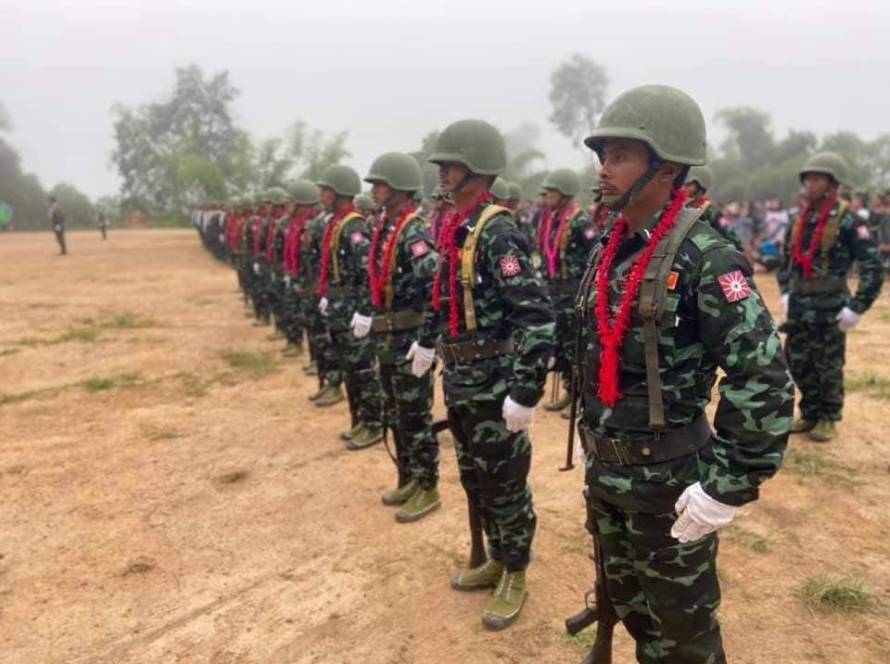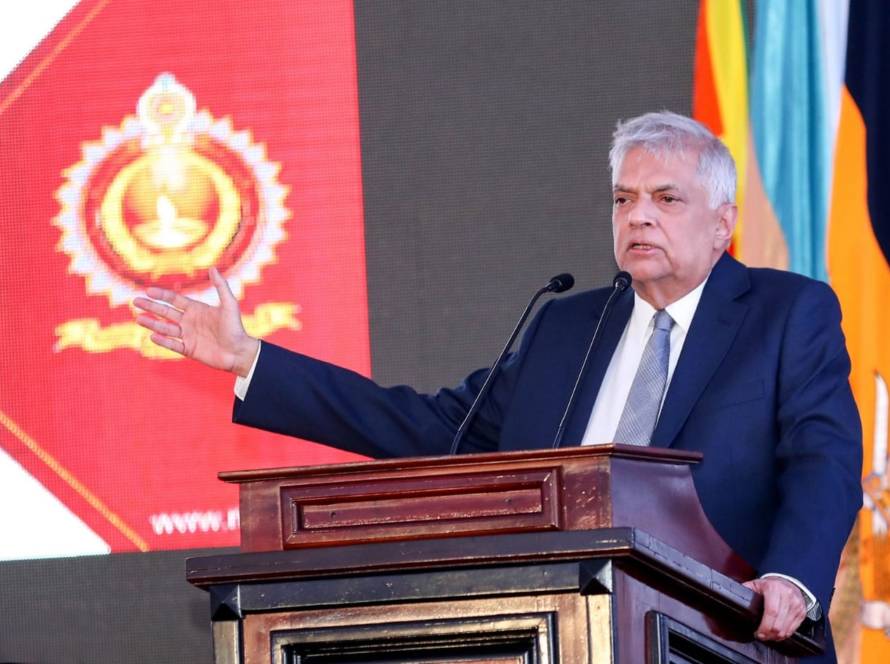By P. K. Balachandran
India’s abstention from the UN General Assembly (UNGA) vote late last month on a Jordanian resolution calling for a humanitarian pause in the war in Gaza has put it in an awkward position vis-à-vis the Global South and its neighbours, which are its core constituencies.
Finding itself isolated New Delhi issued a supplementary statement five days after the vote, saying that it would like to see negotiations leading to a Palestinian State “living within secure and recognised borders, side-by-side and at peace with Israel.”
But the revised statement came unstuck. The damage had been done.
New Delhi’s turning a blind eye to the virtual genocide being carried out by Israel’s daily carpet bombing of Gaza, killing many more thousands of innocent civilians than the Hamas did in Israel on October 7, showed an insensitivity very uncharacteristic of India’s posturing on such issues in the past.
In contrast, in the eyes of the Global South and India’s neighbours, Israel’s response to the Hamas attack was gross and uncalled for.
India was with Australia, Canada, Germany, Japan, Ukraine, and the UK in a group of 45 countries abstaining on the Jordanian resolution titled “Protection of civilians and upholding legal and humanitarian obligations.”
Interestingly, the resolution was co-sponsored by Bangladesh, Pakistan, Maldives, and South Africa, three of which are India’s neighbours. And South Africa and India have been comrades in the global fight against colonialism and racial intolerance.
The Jordanian resolution was backed by 120 countries, drawn mostly from Asia, Africa and Latin America, the “Global South” of which India is part. India’s neighbours, including tiny Bhutan, which has a special relationship with India, supported the resolution. Pakistan, Sri Lanka, Myanmar and China were among them.
India’s Excuse
India’s excuse for abstaining was that the Jordanian resolution, while calling for an immediate truce, did not even mention Hamas for its October 7 attack on Israel that killed more than a thousand. More than 200 hostages were also taken.
India voted for a Canadian amendment, which, while calling for a humanitarian pause and the start of talks, also pointedly condemned Hamas’s terrorist acts on October 7. But this amendment had little support.
India’s Statement
Stating India’s case, its delegate, Yojna Patel, made a series of statements.
“The terror attacks in Israel on 7th October were shocking and deserve condemnation. Our thoughts are also with those taken hostages. We call for their immediate and unconditional release.”
“Terrorism is a malignancy and knows no borders, nationality, or race. The world should not buy into any justification of terror acts. Let us keep aside differences, unite and adopt a zero-tolerance approach to terrorism.”
“The humanitarian crisis needs to be addressed. We welcome the international community’s de-escalation efforts and delivery of humanitarian assistance to the people of Gaza. India too has contributed to this effort.”
“We urge the parties to de-escalate, eschew violence and work towards creating conditions for an early resumption of direct peace negotiations. We hope that the deliberations of this assembly will send a clear message against terror and violence and expand prospects for diplomacy and dialogue while addressing the humanitarian crisis that confronts us.”
While its objection to the Jordanian draft on the Hamas issue was justified, India’s statement also had a major omission: it did not mention Israel’s continuous carpet bombing and its efforts to ethnically cleanse Gaza.
Jordanian Resolution
The Jordanian resolution demanded that “all parties immediately and fully” comply with their obligations under international law, including international humanitarian law and international human rights law, particularly in regard to the protection of civilians and civilian objects, as well as the protection of humanitarian personnel and to facilitate humanitarian access for essential supplies and services to reach all civilians in need in the Gaza Strip.”
It also called for: “the rescinding of the order by Israel, the occupying power, for Palestinian civilians and United Nations staff, as well as humanitarian and medical workers, to evacuate all areas in the Gaza Strip north of Wadi Gaza and relocate to southern Gaza.”
The resolution did allude to Hamas but without naming it. It called for “the immediate and unconditional release of all civilians who are being illegally held captive.” It demanded their “safety, well-being and humane treatment in compliance with international law.”
The Jordanian resolution did have a paragraph “condemning all acts of violence aimed at Palestinian and Israeli civilians, including all acts of terrorism and indiscriminate attacks.”
The Hindu pointed out in an editorial that India could have taken note of that paragraph (though Hamas was not named as such) and voted for the motion, while recording in its Explanation of Vote (EoV), that it regretted the omission of any specific reference to the October 7 attacks by the Hamas.
India could have followed France in this respect, The Hindu said.
“India’s abstention indicates a shift in the Modi government’s stand, seeking a safe position, rather than taking a stand on the violence in Israel and Palestine. This is a departure from India’s UNGA vote in 2018 that called for Israel to cease “excessive force” in retaliatory strikes on Gaza at the time,” The Hindu said.
“Abstaining on a matter of global importance without making efforts to forge a consensus is out of sync with a desire to be the voice of the Global South, or for a seat at the global high table,” it added.
Geopolitical Considerations
A key reason for India’s deviating from its traditional stand on the Palestinian question is its growing dependence on Israel and the US for its defence against China on its borders and the Indian Ocean.
In 2022 alone, India bought USD 327.83 million worth of military equipment from Israel. It had got valuable intelligence from Israel during the Indo-Pakistani Wars in 1971 and 1999.
The recent sentencing to death of eight retired Indian naval officers by a Qatari court for allegedly spying for Israel may also have contributed to the anti-Hamas sentiment in New Delhi. Qatar is viewed by India, Israel and the US, as pro-Hamas and pro-Islamic terrorism.
Electoral Calculations
Then there is an electoral calculation too. In the North Indian belt, which is under the sway of Narendra Modi’s Hindu nationalist Bharatiya Janata Party (BJP) there is strong support for Israel, which is seen not just as being anti-terrorist but anti-Muslim as well.
Therefore, it suits the BJP government to play to the Hindu nationalist gallery in the context of the forthcoming elections in the North Indian States of Madhya Pradesh, Rajasthan, and Chhattisgarh, and also in the national elections in May 2024.
The BJP government’s stand will of course alienate Indian Muslims, but it will not be bothered by this if it can consolidate the vote of the majority Hindu community.
Muslim World
In the international sphere, India’s stand may alienate it from the Arab and Muslim worlds, where millions of Indians work and send back billions of dollars in remittances.
Other Muslim countries like Iran and the Central Asian republics, with which the Modi government has been cultivating close ties for economic benefits, may become less enthusiastic about cultivating fraternal ties with India.
Naval Officers’ Issue
New Delhi has been making efforts to get the Qatari authorities to cancel the death sentence given to eight retired Indian naval officers who had allegedly spied for Israel. But the million-dollar question is: Will the Qataris harbour a grudge against India for its stand on the Gaza issue at UNGA and refuse to save the condemned Indian nationals?
P. K. Balachandran is a freelance journalist based in Colombo writing on South Asian affairs for various news websites and dailies for a number of years. He has reported from Colombo and Chennai for Hindustan Times, New Indian Express and Economist. He has a weekly column in Daily Mirror and Ceylon Today in Sri Lanka.
Factum is an Asia Pacific-focused think tank on International Relations, Tech Cooperation, and Strategic Communications accessible via www.factum.lk.
The views expressed here are the author’s own and do not necessarily reflect the organization’s.


